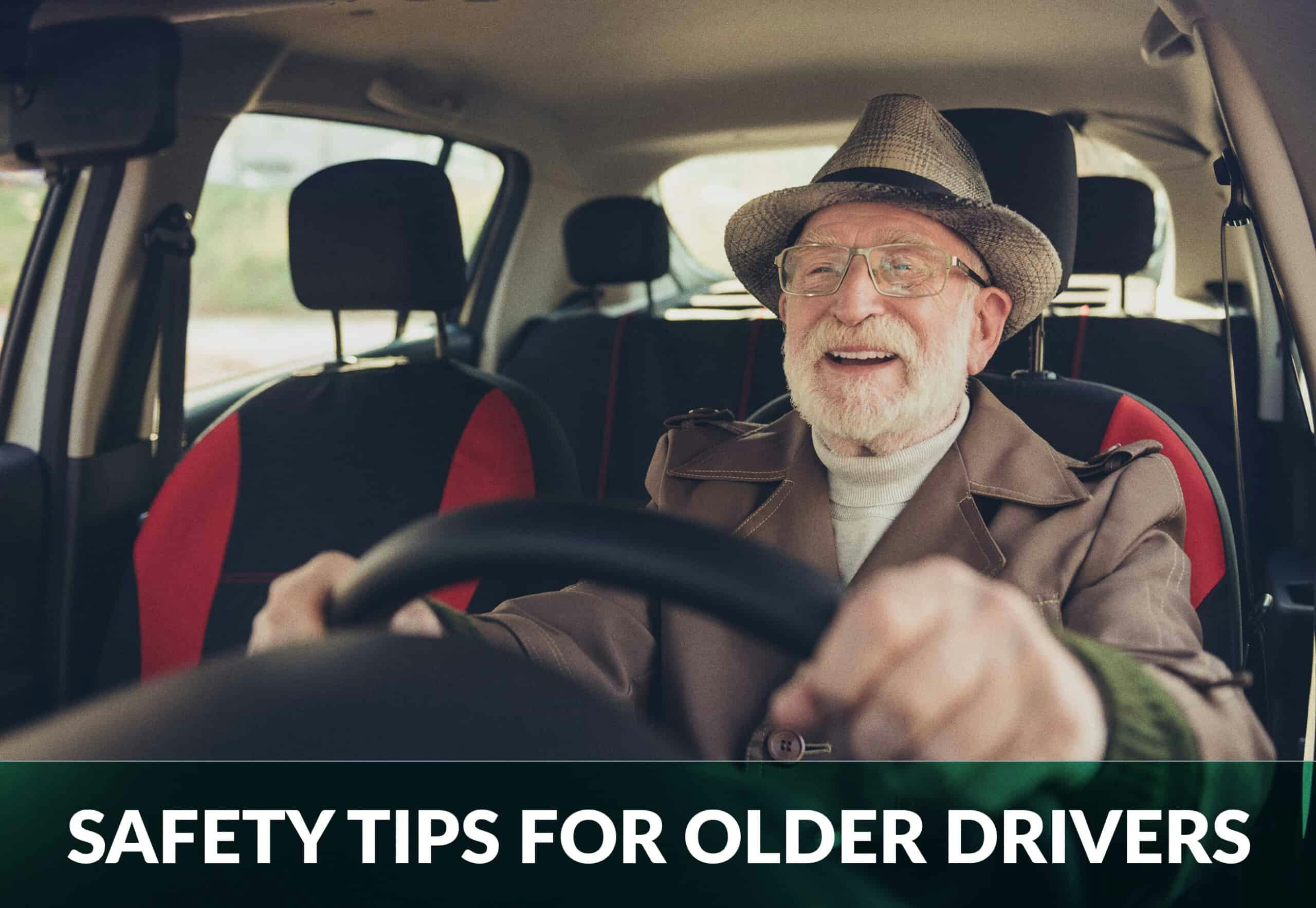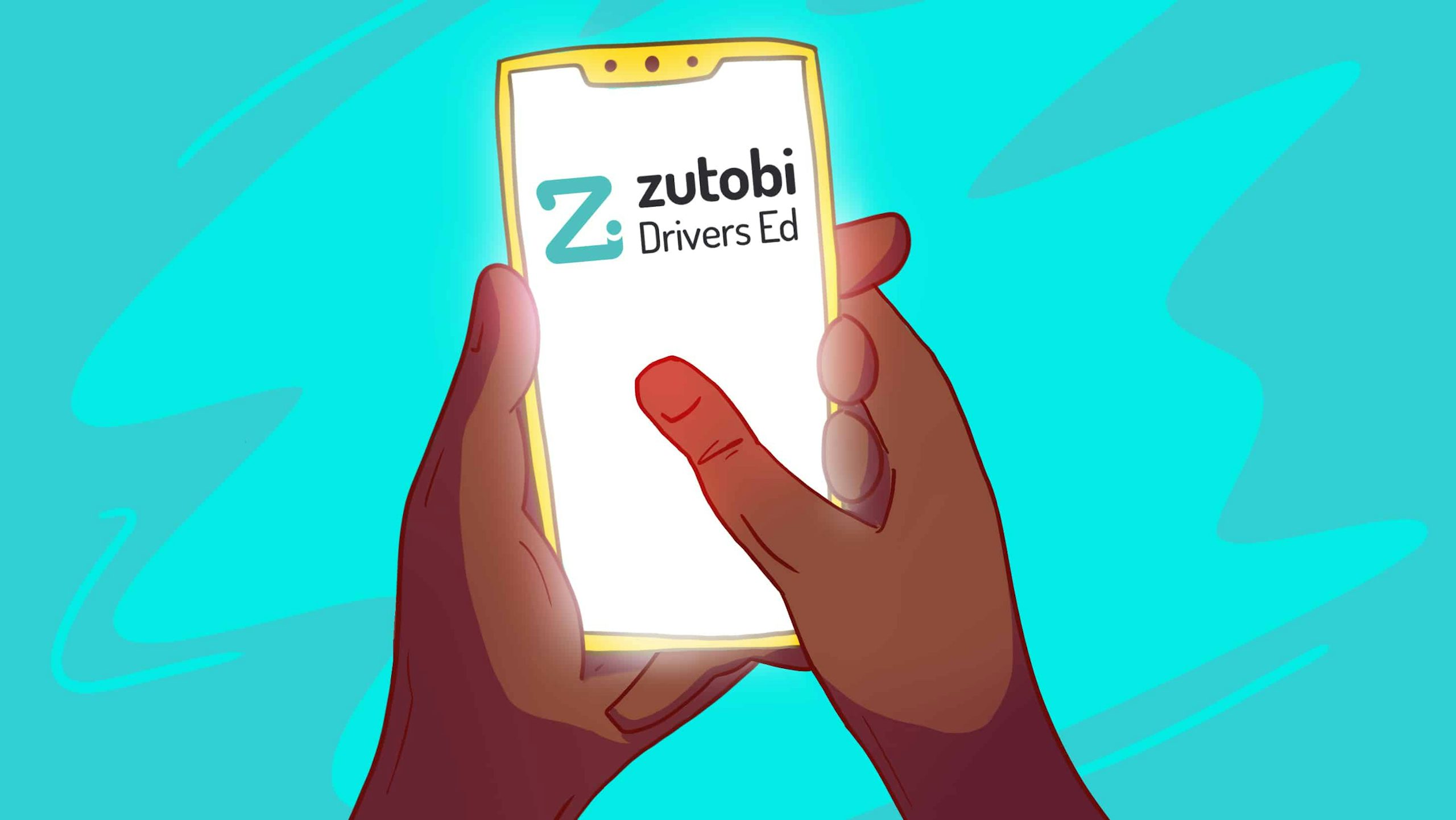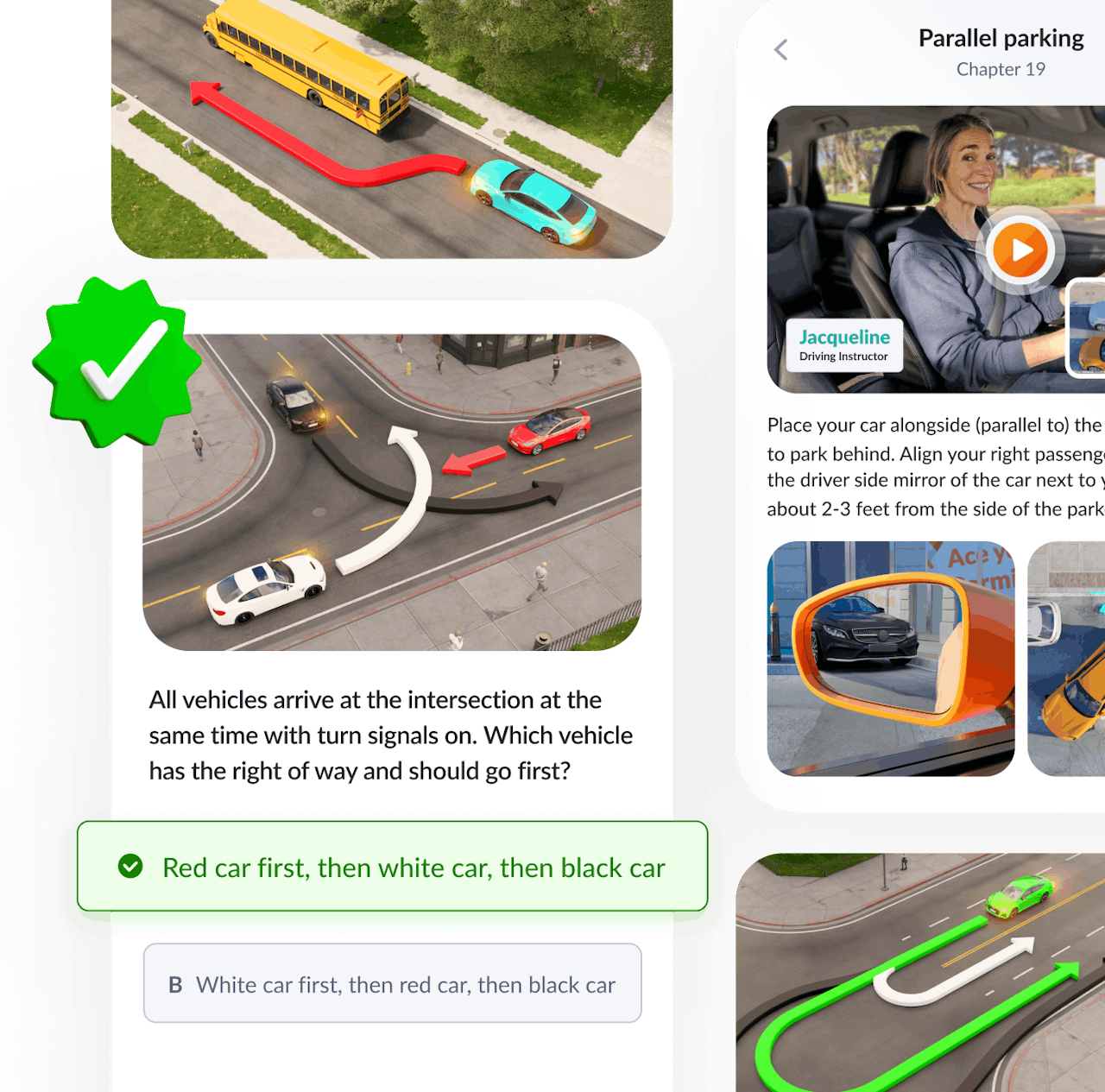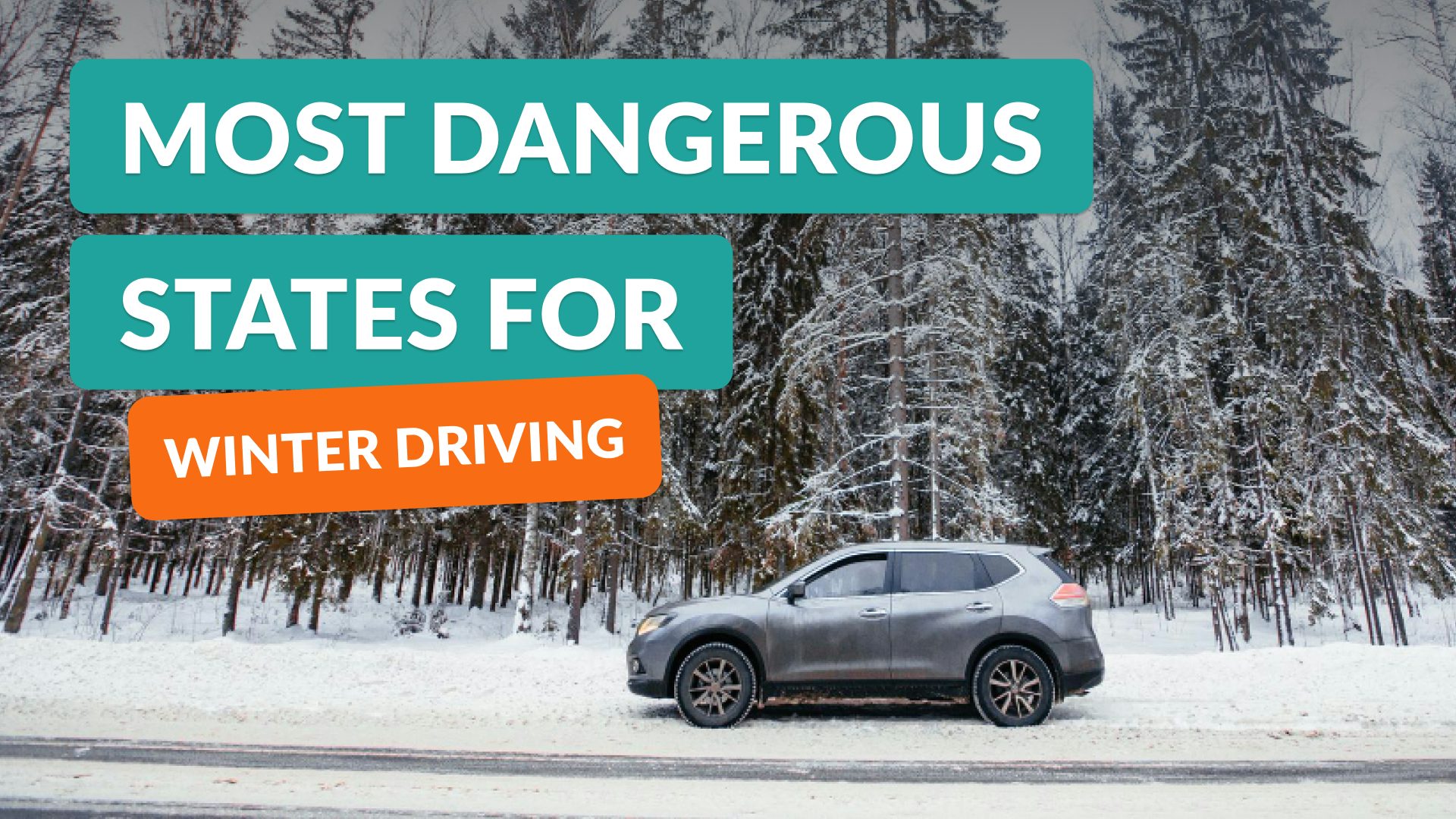
Staying Safe as an Elderly Driver – A Safe Driving Guide
As you get older, you’re probably already aware that you’re not as physically fit as you were as a teenager. Simple tasks like driving become much harder, which may cause worries about whether you should continue using your license. The good news is that, as long as seniors like yourself take precautions, you are typically safe drivers due to your years of experience.
However, at some point, it’s time to stop driving. Spend some time thinking about this, listen to others’ advice, and make the decision for yourself.
Safety Tips for Older Drivers
These tips help seniors stay safe on the roads and may help compensate for the disadvantages of age.
Remain Physically Fit
While driving isn’t a particularly strenuous activity, it does require some level of fitness and flexibility. Additionally, physical activity keeps you in better overall health, which in turn improves your ability to stay aware and react quickly.
Taking a walk every day is a great way for the elderly to keep in shape. There are many other ways to keep fit, whether you want to try strength training, stretching, or physical therapy. Be sure to ask your doctor about any concerns you may have.

Regularly Test Vision and Hearing
As you age, it can be harder to hear and see. These senses are extremely important for safe driving, so schedule regular vision and hearing tests with the help of your doctor. Routine screening will help determine whether or not it’s safe to keep driving, and it may help catch minor health problems before they become more serious.
Manage Medication
Medication can impair your ability to drive. Always read labels and be aware of side effects, such as drowsiness, when you’re considering driving somewhere.
Accept Your Limitations
It’s important to learn to accept that your ability to drive is becoming more limited as you age. Make adjustments to compensate, such as making an extra effort to drive safely or purchasing a newer vehicle with more safety features. It’s incredibly important that you drive defensively as a senior – this includes staying within the speed limit, adjusting your speed to the conditions, maintaining a proper following distance etc. You can read more about defensive driving here.
It’s also important to listen to advice. Trust your doctor and listen to other loved ones in your life. You may think you’re perfectly able to drive, but if your adult children are concerned about your safety, it’s a good idea to reconsider.

Only Drive During Good Conditions
Poor weather conditions, such as snow, rain, or wind, and poor road conditions, such as construction, make driving harder. It may be a good idea to avoid difficult driving conditions altogether – they decrease safety due to reduced visibility and traction. This is not ideal for driving, especially as you get older.
If you need to drive somewhere, ask someone else to drive, wait for the weather to clear up, or use an alternate route.

Don’t Get Distracted
You’ve been told to avoid distractions since the day you got your learner’s permit, but cutting out distractions is just as important now as it was then. It’s not worth the risk to send a text message, chat on the phone, or eat a snack. Focus on the road and only on the road.
Head Back to Driver’s Ed
It’s probably been a few decades since you passed your knowledge and driving tests. Even if you’ve driven every day since then, there’s almost certainly information you’ve forgotten. Many states offer refresher courses for older drivers to help you recall the information you learned as a teen. If you want to review on your own, Zutobi’s driver education is a great choice. With Zutobi, you can quickly learn everything you need in the comfort of your own home.
This will help you stay updated on the newest driving laws, and will refresh your driving skills and knowledge.

Don’t Drive Alone
If you have an injury or medical condition that affects your ability to drive at unpredictable times (like low blood sugar episodes with diabetes), take a friend or family member that can take over if necessary. This will also make finding someone to drive for you easier when it comes time to stop driving altogether.
Considerations for Purchasing a New Car
Car buying philosophy can vary greatly between individuals. While some people with means are determined always to purchase a new vehicle, many may opt to buy a car a few years old or even a much older reliable vehicle when transportation is needed.
As you age, there may be additional considerations in a car purchase that were not as important when you were younger. Here are some things to think about:
- Safety. Although safety is one thing that tends to increase in just about every model year, backing cameras and parking sensors can be particularly helpful to senior drivers.
- Comfort. As you age, it may be much easier to get in and out of vehicles that are higher off the ground. Perks such as lumbar support and adjustment, heated seats, and finely adjustable steering wheels, mirrors, and accessories can make a big difference ergonomically for an older body.
- Technology. If you happen to be making a big jump in model years, be sure you take the time to figure out accessories that are unfamiliar before getting on the road. While many technological advancements are designed to increase convenience and safety, they can be a distraction on the road.
When it’s Time to Hang up Your Car Keys
Part of driving safely as a senior is knowing when it’s time to stop. It can be hard to give up the freedom that comes with having a driver’s license. However, your safety, your passengers’ safety, and the safety of other roadway users depend on it.
Consider putting away your license if:
- Family members are worried.
- Your doctor doesn’t think you’re physically and/or mentally able to drive.
- You aren’t comfortable with driving.
- Your hearing and sight are declining.
In addition, if you find yourself making more frequent driving errors, it may be time to consider hanging up your keys. Here are some increased behavioral issues to watch for:
- Missing stop signs or traffic lights.
- Confusion about right-of-way
- Inability to maintain proper speed limits
- Not remembering to turn on or off turn signals.
- Getting confused or lost more frequently.
- Experiencing trouble with distance perception.
- Finding it harder to hold or change lanes.
- More “close calls.”
- Additional worry and stress while driving.
How Family Members Can Help
Concerned family members may find it difficult to talk with elderly parents about driving. However, it’s important to remember that avoiding this important topic may result in serious injury or death to not only your older family member but others on the road. Here are some tips on broaching this sensitive subject:
- Consider Their Perspective. Remember that driving represents independence for many older citizens and that giving up their license can be much more than a safety issue. Be empathetic to these other concerns.
- Employ Reflective Listening. This technique of repeating what the other has said illustrates a sense of understanding and puts you on the same side.
- Work Together on a Plan. Talk with them about extra precautions they can take. Perhaps better glasses, agreeing to forego nighttime driving, or staying within familiar boundaries can be initial steps.
- Find Transportation Alternatives. Many concerns may be practical in nature so be sure to help your older family member come up with other transportation options. That may include setting up a network of family or friends to help, exploring safe ride-sharing options locally, public transportation programs for the elderly, delivery services for groceries or meals, or even asking about telehealth appointments with providers to limit the number of necessary trips.
Instigate an Investigation. As a last resort, family members who cannot convince an older, unsafe driver to give up driving, can contact their state’s Department of Motor Vehicles. Family members, doctors, or other concerned individuals can make a referral if they have the name, address, birthday, and explanation of the concern for a specific driver. Officials may then request a road test for that individual.

600+ exam-like questions and practice tests
Easy summarized DMV handbook
America’s #1 driver’s ed app with a 95.8% pass rate
Recommended articles
Ace your DMV test, guaranteed
Want to Be the Top School in Your Area?
- Simple & automated admin
- More time for teaching
- #1 learning materials for students


